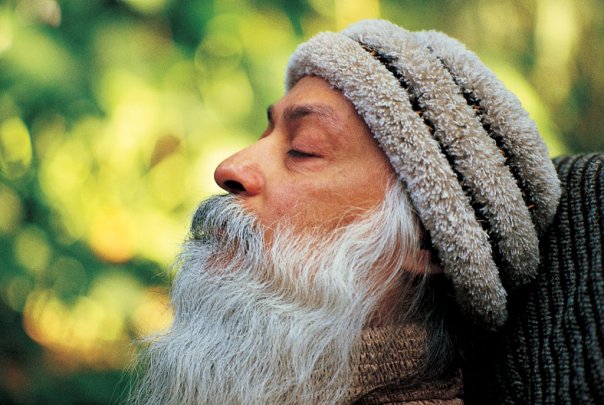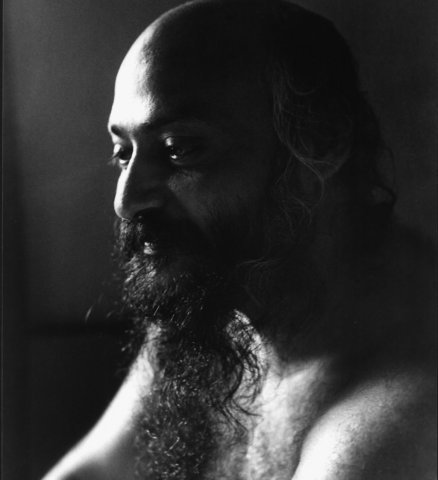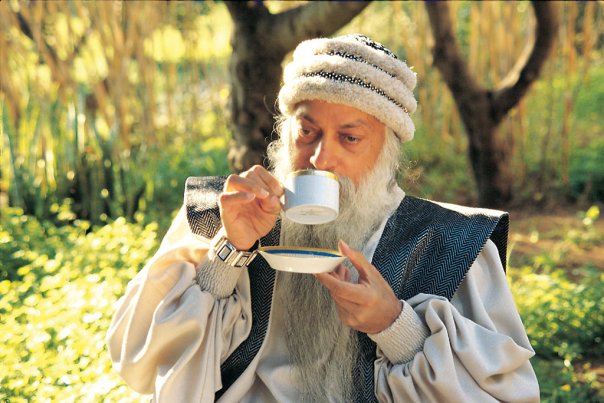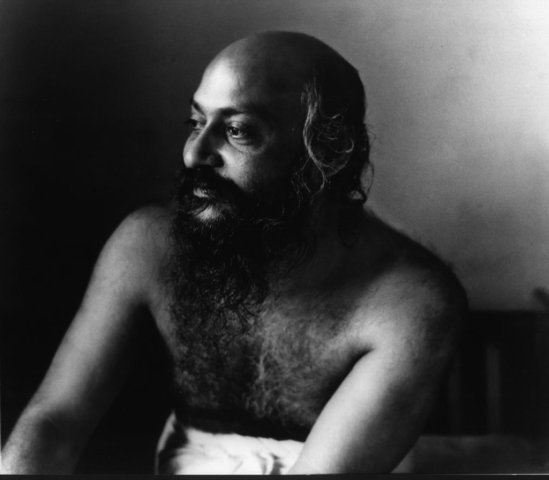Osho Quotes on Detachment
- Life is such that detachment is bound to happen, it is not that you have to make tireless effort for it. In fact you are making tireless effort so that detachment does not arise. Just think, look back on your life, take a bird’s-eye view and you will find that the whole of life is leading you towards detachment. The whole message of life is detachment, the whole flow of life is towards detachment. Life brings you sorrow from all directions but still detachment does not arise in you. Life disappoints you in every respect, breaks you down, tears you asunder, but detachment still does not arise in you — it is a miracle! Otherwise the natural flow of life is towards detachment.
- Detachment: live in the world but don’t be of the world. Live in the world but don’t let the world live within you. Remember that it is all a beautiful dream, because everything is changing and disappearing.
- If you become detached you will be able to see how people are attached to trivia, and how much they are suffering. And you will laugh at yourself because you were also in the same boat before. Detachment is certainly the essence of the way.
- Indifference looks like detachment, but it is not; indifference is simply no interest. Detachment is not absence of interest — detachment is absolute interest, tremendous interest, but still with the capacity of non-clinging. Enjoy the moment while it is there and when the moment starts disappearing, as everything is bound to disappear, let it go. That is detachment.
- The absence of attachment is detachment; it is not the opposite of attachment. It is not that attachment will disappear from your heart and detachment will take its place — attachment will disappear and nothing will take its place. This is the ultimate detachment.
- The soul can grow only in freedom. Love gives freedom. And when you give freedom, you are free, that’s what detachment is. If you enforce bondage on the other, you will be in imprisonment on your own accord. If you bind the other, the other will bind you; if you define the other, the other will define you; if you are trying to possess the other, the other will possess you. That’s how couples go on fighting for domination for their whole life: the man in his own way, the woman in her own way. Both struggle. It is a continuous nagging and fighting. And the man thinks that in some ways he controls the woman and the woman thinks that in some ways she controls the man. Control is not love.
- Detachment means to remove one’s mind from all sorts of desires. As the mind is removed from desires, the energy that was being destroyed in running after these desires is saved and it becomes a flame.
- If one can remember that nothing is important, one becomes detached spontaneously, by and by. No need to practise detachment. Just in the very realisation that nothing is important, one becomes detached. That detachment is beautiful. If you practise detachment it is ugly, because deep down the attachment continues. You go on fighting with it and you create the opposite but the conflict continues. And wherever there is conflict there is ugliness. And wherever there is no conflict there is beauty. Beauty is energy moving into deep harmony without any conflict.
- Detachment is also one of the by-products of awareness. If you are alert you cannot wound or grieve another, because you know there is no other; it is all one reality. Wounding somebody else… is as if you are wounding yourself — maybe your right hand wounding your left hand — and the pain will be yours. You can wound somebody, but ultimately you have wounded yourself because there is nobody else, it is all oneness.
- The day you stand firm in detachment and you have no desires about this world, you have no demands from this world, and the futility of this world is revealed to you — the outcome is knowledge. Then you are full of wisdom; then for the first time wisdom arises in you and a lamp is lit within you.
- By detachment Buddha means, don’t think of yourself as the body. If you think yourself to be the body you cannot undertake this adventure of finding yourself, because you have already become identified with your body. Don’t be identified with the mind either. If you think that you know already, then you will remain confined to whatsoever you are.
- Buddha says that everything is a flux, changing, non-permanent, and that one should know this. Buddha’s emphasis is so much on this point. His whole standpoint is based on it. He says, “change, change, change: remember this continuously.” Why? If you can remember change, detachment will happen. How can you be attached when everything is changing?
- If you force detachment you will make a mess of your life because when the right time was there for attachment you missed it. Then you tried to pretend and force detachment. Then when the time of detachment comes, when you become old, the suppressed part is still hanging around you like a haze and then you see that death is reaching — you become afraid. The suppressed part says, “Then when will there be a time for me? I wanted to love, I wanted to be attached, I wanted to be involved and committed to some relationship — now there is no time!” Then the suppressed part forces itself up and an old man becomes foolish and he starts asking for relationships. He has missed everything. He has missed all seasons. Remember: Be in step with the season.
- This distinction must be understood. By `detachment’ I don’t mean a person who has renounced the world — then there is no sense and no meaning in detachment. A detached person is a person who is living in the same world as you — the difference is not in the world. A person who renounces the world is changing the situation, not himself. And you will insist on changing the situation if you cannot change yourself. That is the indication of a weak personality. A strong person, alert and aware, will start to change himself… not the situation in which he is. Because really the situation cannot be changed — even if you can change the situation, there will be other situations. Every moment situations go on changing so every moment the problem will be there.
- Meditate, become more sensitive, and take it as a criterion that you will go on becoming more and more detached. If you feel that attachment is growing, then you are erring somewhere in your meditation. These are the criteria. And to me, attachment cannot be destroyed and detachment cannot be practised. You can only practise meditation — and detachment will follow as a consequence, as a by-product. If meditation really flowers within you, you will have a feeling of detachment. Then you can move anywhere and you will remain untouched, unafraid. Then when you leave your body, you will leave it unscratched. Your consciousness will be absolutely pure, nothing foreign has entered into it. When you are attached, impurities enter into you. This is the basic impurity: that you are losing your center and somebody else or something else is becoming your center of being.
- Detachment is not against attachment, desirelessness is not against desire. Desirelessness cannot be desired, and non-attachment or detachment cannot be practised — because if you practise it, you will get attached to it. Detachment or non-attachment arises out of the understanding of attachment. Just seeing into the very process of attachment, you see it is meaningless, futile. When it is meaningless, futile, it drops. Not that you drop it, no — if you drop it, you are still there. Now you become a renunciate — you start claiming: ‘I am a great renunciate, I am a great saint, I have renounced the whole world.’
- If the world is a dream one never loses one’s cool there is no point. If somebody insults you in a dream, so what? There is no need to get stirred, disturbed, distracted. If somebody praises you in a dream, so what? There is no point in feeling puffed up, bloated. One remains the same — in failure, in success — because all is a dream. Then out of this detachment arises the watcher. One becomes more and more rooted in watching because now one is not involved in seeing. One’s energy is free of seeing so one’s energy starts falling into the seer. This is turning in.
- Knowledge through detachment… if the detachment is real, knowledge is bound to follow. If knowledge is true, relaxedness is bound to follow. If relaxedness is real, peace will always follow. And if peace does not arise out of your relaxedness, know well that your relaxedness is an imposed one.
- The hindu way of burning the body is very significant. It is significant for the soul that has departed, because the soul can see the body being burned, reduced to ashes. It helps detachment. It gives a last shattering, a last hammering shock — because when a person dies, it takes a few hours for him to recognise that he is dead. And if the body is buried underground — as for Christians and Mohammedans — then it takes many days for the person to recognise that he is dead. With the hindu way of burning, immediately it becomes a realisation that the body has been left.
- If detachment is the opposite of attachment then it is wrong. But if detachment is freedom from attachment then it is right. This is a very delicate difference. If detachment is the opposite of attachment then there is something wrong somewhere, because that which is the opposite of attachment is definitely connected with attachment. All the opposites are interconnected. If you love anyone, you go on remembering him. If you hate anyone, even then you go on remembering him. Love and hate are opposites but they are connected. A friend you can perhaps forget, but you cannot forget your enemy. It goes on pricking you like a thorn. You are related with the friend, similarly you are related with the enemy too.
- If attachment becomes meaningless it is enough; if attachment is over it is enough. The disappearance of attachment is detachment — nothing else is needed except this. But the reverse always happens. After reading these sutras many people, innumerable people, have caught hold of detachment without giving up attachment. Attachment continued but in the guise of detachment. First you were standing on your feet, now you are standing on your head, but nothing changes by standing on your head; things remain just as they were. But when attachment stands on its head it becomes detachment — ordinary people’s detachment, the so-called sannyasin’s detachment. But when attachment disappears, then the detachment of Mahavira, Buddha, and Shankara is born.




well it is a great quote and i learn a lot of things from it. thanks osho for your ultimate conciousness
Just lovely. Super beautiful.
It’s worth reading over and over and most of all it’s putting into practice what is read.